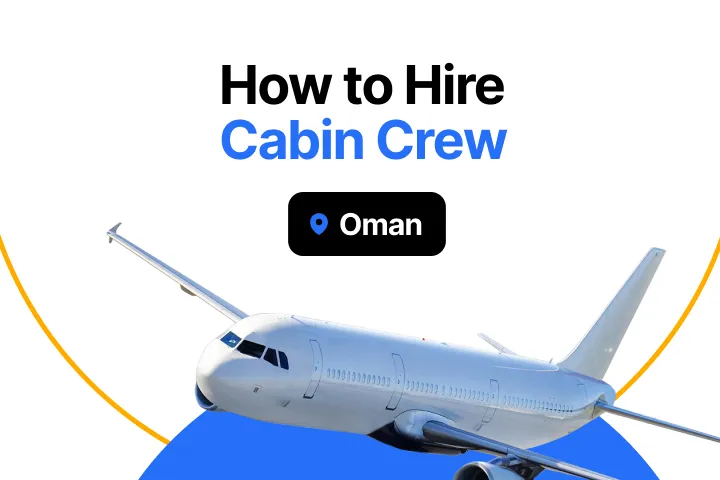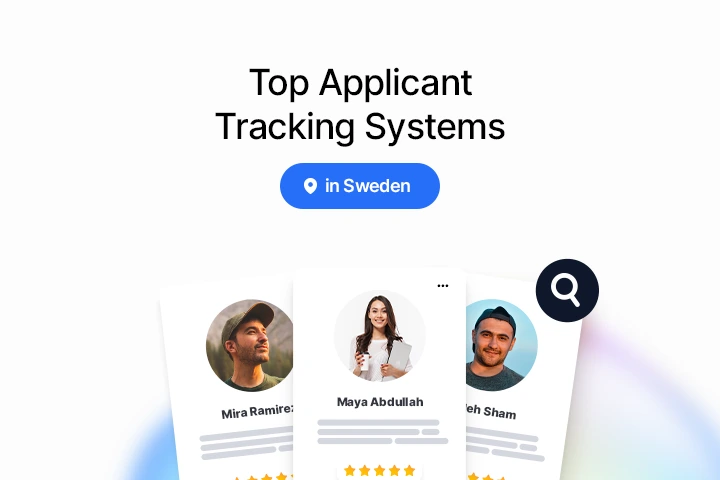Onboarding is a critical phase in the employment lifecycle, especially in Egypt, where labor regulations, cultural nuances, and workforce diversity require recruiters to navigate a complex terrain. A well-planned onboarding process ensures legal compliance, promotes employee engagement, and accelerates productivity while minimizing turnover and improving organizational reputation.
{{egypt-1="/sandbox/home-v3"}}
This guide details the comprehensive onboarding workflow tailored for Egypt, highlighting recruiter responsibilities, compliance requirements, cultural integration, and technology tools that optimize the experience for Egyptian nationals and expatriates.
Read more: Top Recruitment Platform for Recruiters
Why Strategic Onboarding Matters in Egypt
Compliance with Egyptian Labor Law
Egypt’s labor market is governed by the Labor Law No. 12 of 2003, which stipulates clear provisions on employment contracts, probation periods, social insurance registration, and termination protocols. Employers must ensure that employment contracts comply with legal requirements, including working hours, wage details, leave entitlements, and probation terms. Non-compliance may lead to penalties, disputes, or labor union interventions. For expatriate hires, additional immigration laws regarding work permits, residence visas, and medical clearances apply.
Recruiters must keep abreast of labor law amendments and changes in immigration policies, ensuring that onboarding documentation and processes adhere to current regulations. This compliance safeguards the employee’s rights and the employer’s legal standing.
Enhancing New Hire Engagement and Retention
Retaining talent is a major challenge in Egypt’s highly competitive job market. Research indicates that effective onboarding can improve new hire retention by up to 82% and productivity by over 70%. A structured onboarding program that communicates job expectations, provides role-specific training, and facilitates cultural assimilation helps new employees feel valued and aligned with the company’s vision.
Onboarding programs that address cultural differences and workplace expectations significantly reduce anxiety and increase engagement, leading to better performance and long-term loyalty, particularly for expatriates and young professionals entering Egypt's workforce.
Fostering Cultural and Operational Integration
Egyptian workplaces are culturally rich and diverse, combining local traditions with international business practices. Recruiters are pivotal in preparing new hires to navigate this environment, emphasizing cultural sensitivity and collaboration. Orientation programs that include insights into Egypt’s social customs, religious practices, and communication styles foster respect and teamwork.
Operationally, onboarding accelerates the acquisition of technical skills and familiarity with company systems, processes, and goals. This is especially important in Egypt’s evolving IT, manufacturing, and finance industries, where rapid adaptation is key.
Explore more: Why the Personality Hire is Important in the Workplace
How to Onboard an Employee in Egypt in 2026
1. Pre-Boarding Activities
Effective onboarding begins well before the employee’s first day. Pre-boarding activities focus on documentation, regulatory approvals, and setting expectations.
Issue Offer Letter and Prepare Employment Contract
Recruiters must issue a detailed offer letter to the candidate, specifying salary, benefits, job title, probation period (usually 3 months but can extend to 6 months with consent), and working hours. This letter serves as the basis for the employment contract, which must be written in Arabic as required by the Egyptian Labor Law (Article 10). Bilingual contracts are commonly used for expatriates.
The contract should include clauses covering termination rights, leave policies, confidentiality, and non-compete agreements. Employers must provide two copies, one for the employer and one for the employee, signed to formalize the agreement.
Obtain Work Permit and Residency Visa (For Expatriates)
For expatriates, recruiters must obtain a work permit from the Ministry of Manpower and Migration (MOMM) before employment begins. This involves submitting the signed contract, candidate qualifications, passport copies, and sometimes security clearances.
Once approved, the employer processes the residency visa, which enables the expatriate to live and work legally in Egypt. This step includes medical examinations and biometric data submission at accredited clinics or embassies.
Collect Documents and Conduct Background Checks
Recruiters coordinate with candidates to collect necessary documents such as academic certificates, professional licenses, and identification documents. Background checks, including criminal record verification and employment history, are conducted to ensure candidate suitability and compliance.
IT and Logistics Setup
Before Day 1, IT teams provision hardware, software access, and network credentials. Recruiters ensure the workstation, email accounts, and essential tools are ready for a smooth start.
Welcome Communication
A welcome package, including an onboarding schedule, employee handbook, and company policies, is sent electronically. Clear communication helps new hires prepare mentally and logistically for their first day.
Read more: How to Hire Employees in Egypt
2. First-Day Orientation
Day 1 is the official welcome and introduction to the company culture, policies, and workplace environment.
Company Introduction and Values Presentation
HR conducts a session outlining the company’s history, mission, vision, and core values. This presentation sets expectations about organizational culture and ethical standards, fostering alignment.
Policy and Compliance Overview
Employees are briefed on important policies such as attendance, health and safety, data protection, and grievance procedures. To ensure clarity, expatriates are provided with explanations about Egypt’s labor laws, visa conditions, and workplace rights.
Facility Tour and Team Introductions
A guided tour familiarizes new hires with the workplace layout, including emergency exits, restrooms, cafeteria, and prayer rooms. Introductions to team members and department heads facilitate social integration.
Completion of Administrative Tasks
Employees complete any outstanding paperwork, including tax forms, social insurance enrollment applications, and non-disclosure agreements. Recruiters verify documentation completeness and compliance.
Suggested: Top Hiring Trends in Egypt
3. Training Phase
Training transforms new hires from observers to contributors.
Role-Specific Technical Training
Depending on their position, employees undergo training on company systems, product knowledge, and workflow procedures. This includes hands-on sessions, e-learning courses, and workshops.
Compliance and Ethics Training
Mandatory sessions cover Egyptian labor law compliance, anti-harassment policies, and workplace diversity. This ensures understanding of employee rights and organizational expectations.
Cultural Awareness and Soft Skills
Training for expatriates and new entrants includes modules on Egyptian workplace customs, communication styles, and social etiquette to facilitate effective collaboration.
Read more: What are the best Employee Onboarding Practices?
4. Easing the Transition
Support mechanisms help employees settle into their roles and the workplace community.
Mentorship and Buddy Programs
Assigning mentors or buddies offers new hires guidance, answers questions, and accelerates cultural and professional adaptation.
Scheduled Check-Ins
Regular meetings during the first three months allow feedback exchange, progress tracking, and issue resolution.
Feedback Collection
Surveys and informal conversations capture new hire experiences and identify improvement opportunities.
Read more: Top Countries for Remote Work Opportunities
5. Legal and Compliance Considerations
Recruiters must ensure full adherence to Egyptian labor regulations:
- Employment contracts must be drafted in Arabic and include all statutory clauses.
- Work permits and residency visas are mandatory for expatriates and must be valid before commencing work.
- Social insurance registration with the National Organization for Social Insurance (NOSI) is required within 30 days of hire.
- Medical clearance must be obtained from government-approved clinics.
- Employers must comply with wage payment regulations and maintain accurate payroll records.
Read more: What Is a Human Resource Management System
6. Post-Onboarding Evaluation
Continuous evaluation enhances onboarding effectiveness:
- Gather employee feedback at 30, 60, and 90 days.
- Monitor performance metrics aligned with training objectives.
- Adjust onboarding processes based on data to serve future hires better.
Wrapping Up
Recruiters in Egypt face a complex but manageable onboarding landscape. By carefully issuing compliant contracts, obtaining required permits and visas, and conducting thorough orientation and training, they set new hires up for success.
Embedding cultural awareness and providing mentorship supports smooth integration into the diverse Egyptian workplace. Leveraging technology such as HRMS platforms and e-signature tools reduces administrative burdens and accelerates compliance.
Measuring onboarding outcomes through retention rates, productivity milestones, and new hire satisfaction ensures continuous improvement. By following this comprehensive approach, recruiters can transform onboarding from a routine task into a strategic asset that drives business success and employee fulfillment in Egypt’s vibrant labor market.
{{tool-egy="/sandbox/home-v3"}}




